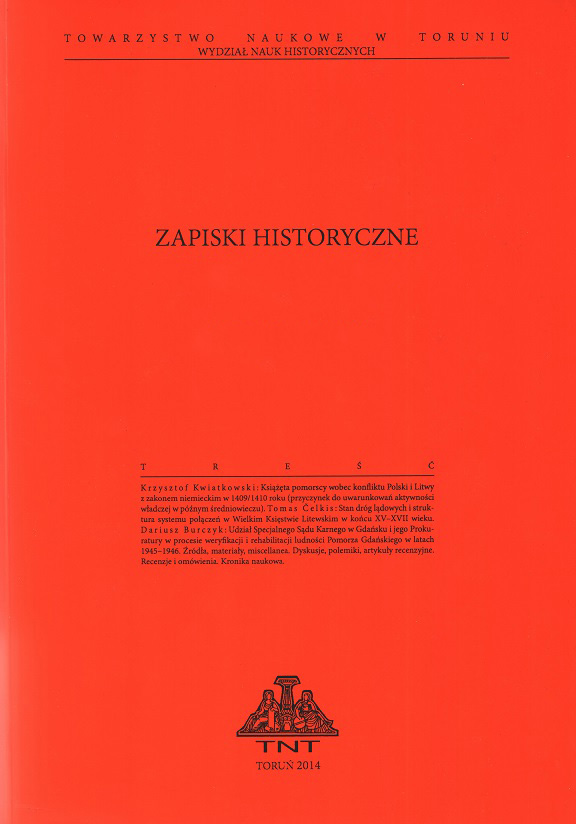„Ta konfederacyja nie stała się contra Maiestatem…”
‘Ta konfederacyja nie stała się contra Maiestatem…’
The Attitude of Jakub Zygmunt Rybiński, Voivode of Chełmno, during the Tarnogród Confederation (1715–1717)
Author(s): Adam PerłakowskiSubject(s): Political history, Social history, 18th Century
Published by: Towarzystwo Naukowe w Toruniu
Keywords: Jakub Zygmunt Rybiński; Tarnogród Confederation; nobility; Augustus II the Strong; House of Wettin; Polish-Lithuanian Commonwealth; eighteenth century
Summary/Abstract: The article aims to present the activity of the Voivode of Chełmno, Jakub Zygmunt Rybiński (d. 1725) during the Tarnogród Confederation (1715–1717). In the period when the movement of the nobility rebelled against the rule of the Saxon dynasty in the Polish-Lithuanian Commonwealth, Rybiński commanded some of the troops that remained loyal to the king, and was involved in hit-and-run tactics against the Confederation’s forces. He did not show any remarkable military talents, as he suffered a defeat in the Battle of Wąchock on 30 November 1715. However, if the situation required it, he was able to oppose the Confederation using various political means, e.g. in the matter of suspending the judiciary. When analysing the collected primary sources, it can be concluded that among noblemen he enjoyed the reputation of a loyal servant to the king. At times this reputation proved to be a burden, when, for example, he received threats from radically anti-royal noblemen. However, in the most difficult period of the struggle between the nobility and the royal court, Jakub Zygmunt Rybiński did not abandon Augustus II, which did not mean that he fully and uncritically supported his political programme. He considered the king’s idea of radically strengthening the monarch’s power with the help of Saxon troops to be a mistake. He rightly predicted that it would cause indignation among noblemen. This was particularly evident in the period immediately preceding the outbreak of discontent in 1714 and early 1715. His attitude towards the Tarnogród Confederation evolved. Initially, he was a supporter of the armed suppression of the rebellion, but later he was increasingly inclined to resolve the conflict through negotiations.
Journal: Zapiski Historyczne
- Issue Year: 85/2020
- Issue No: 2
- Page Range: 33-65
- Page Count: 33
- Language: Polish

